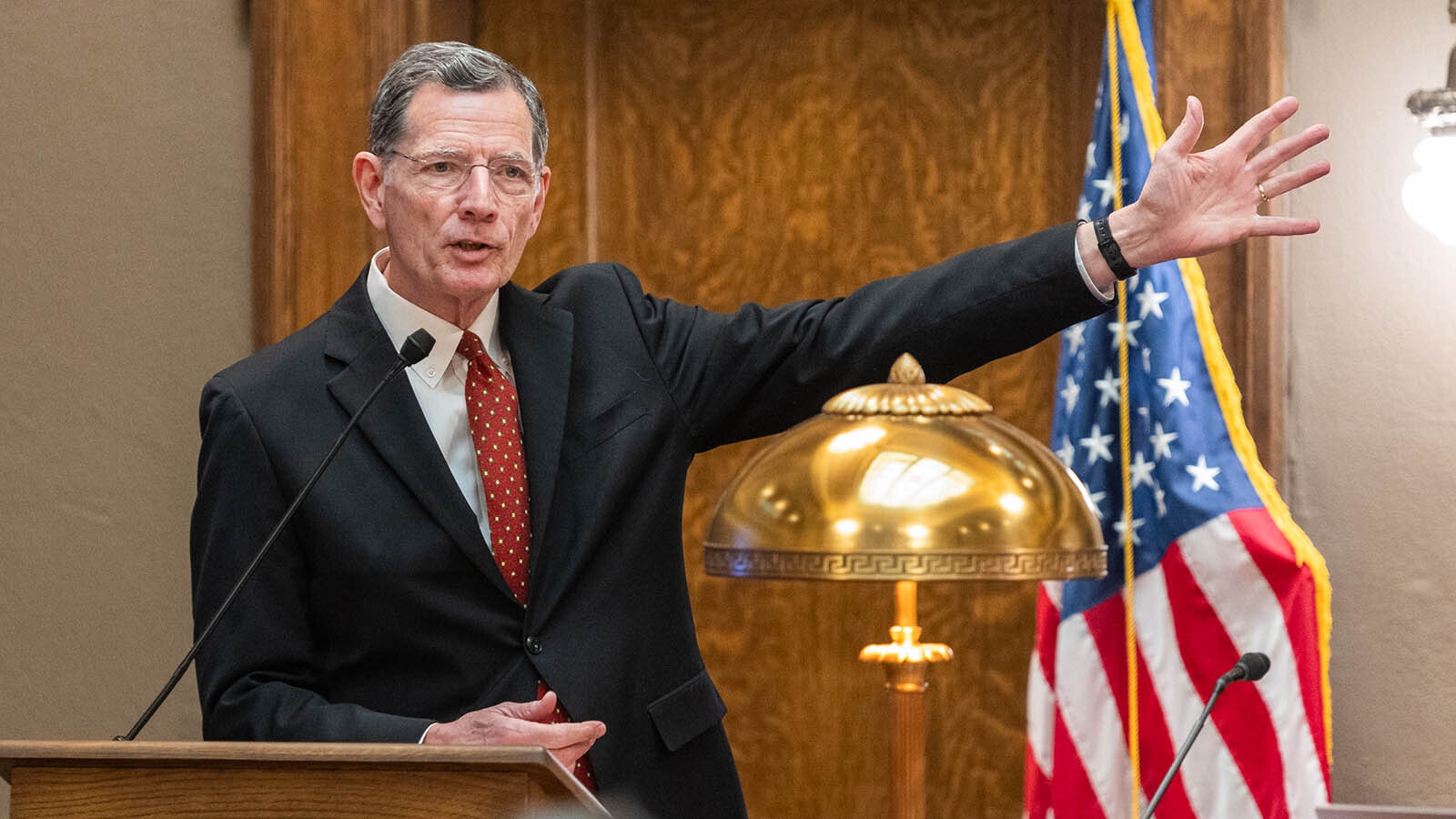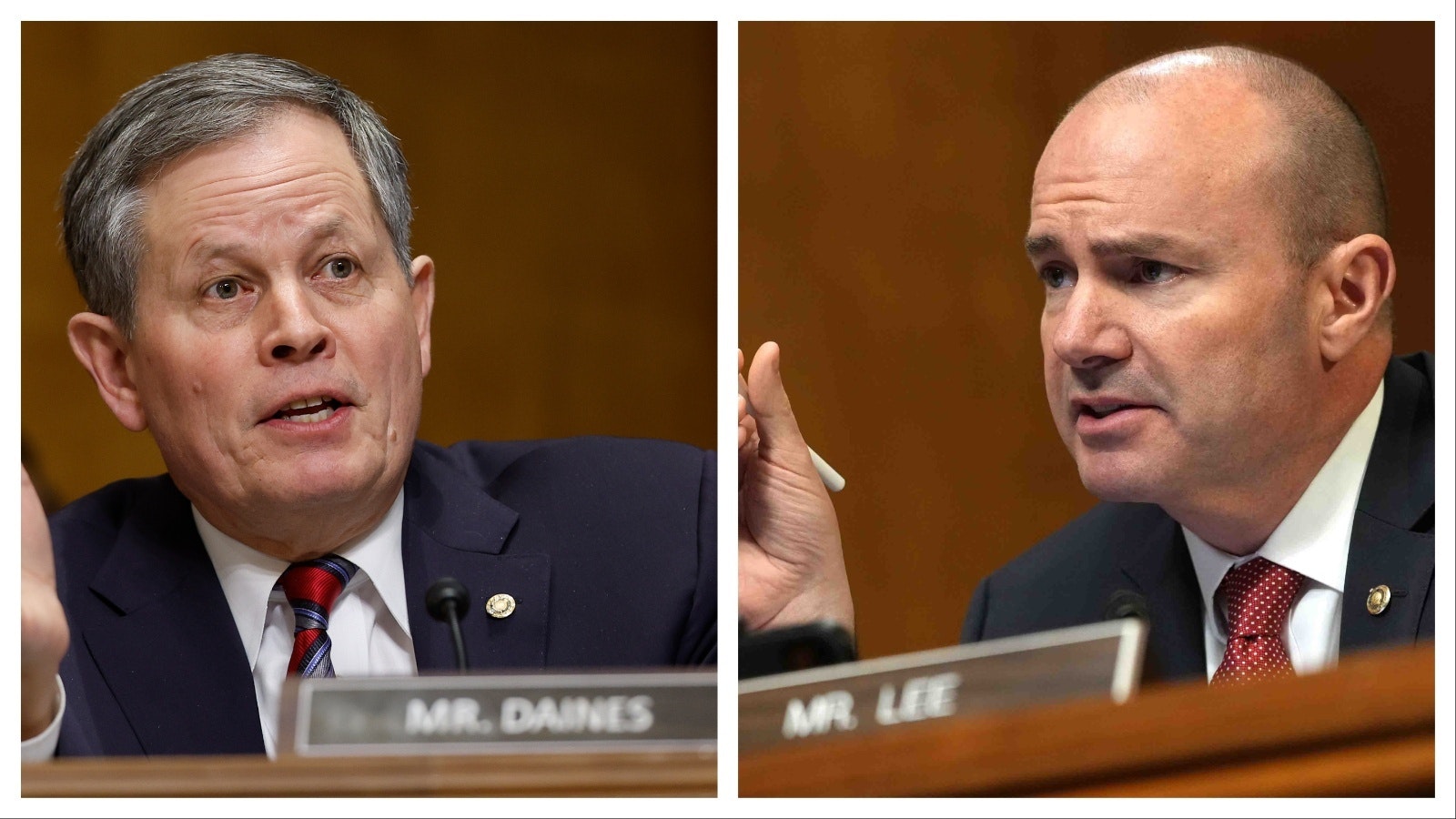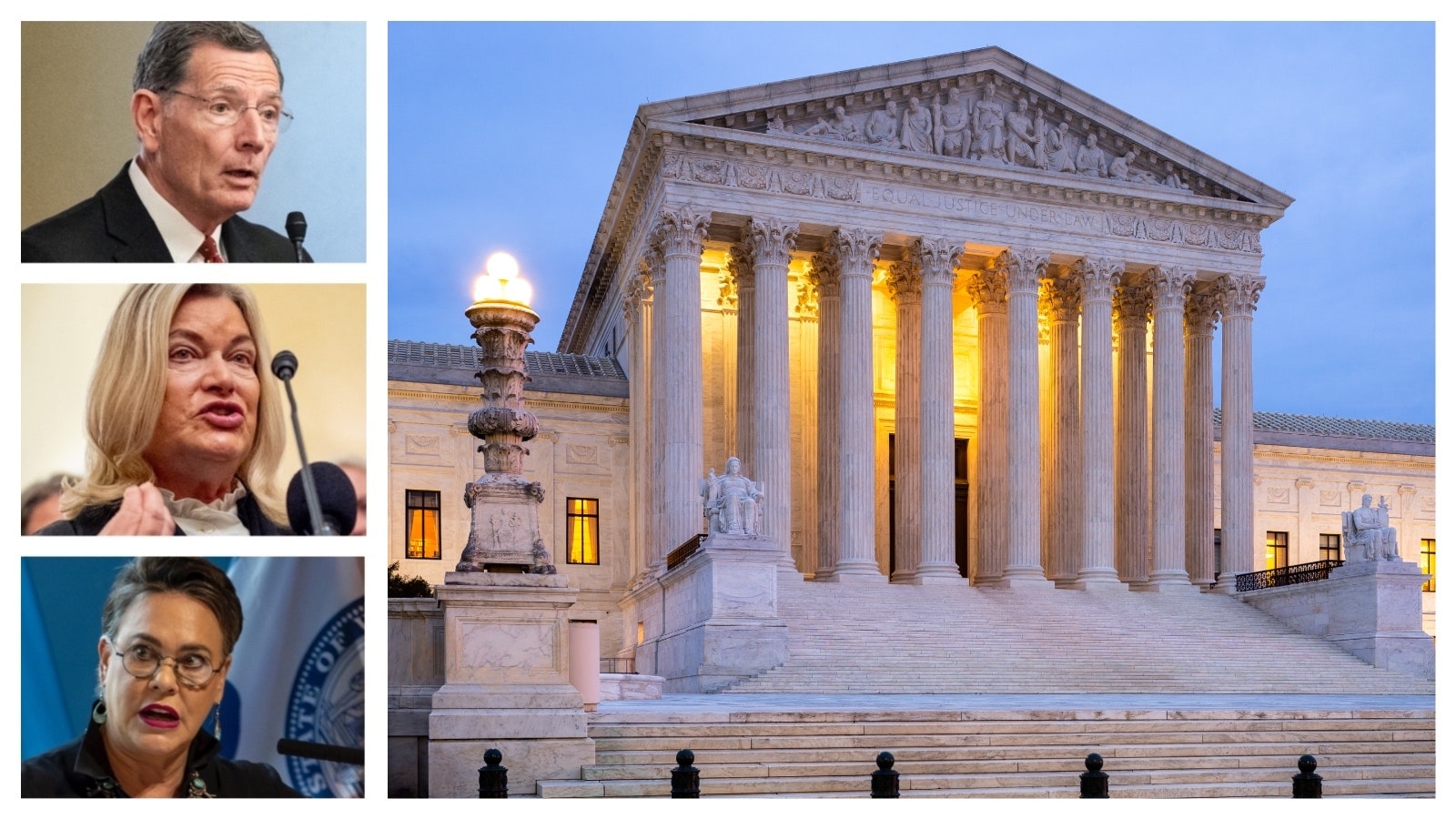A compromise to remove a 10-cent per bag tax from a proposed plastic bag ban in Cheyenne has done little to settle an upswell of public complaints about the plan.
Aaron Nab was among a host of residents this week who told the city’s Finance Committee that banning single-use plastic grocery bags is nothing more than an attempt to emulate policies in California. The policies don’t work there, he said, and Cheyenne’s is just trying to put “a band-aid on societal issues.”
“Community leaders need to be focusing on the cause of issues rather than these petty, political correctness policy laws,” Nab said.
Pinching Pennies
Zachary Taylor, director of the American Recyclable Plastic Bag Alliance, told Cowboy State Daily on Wednesday that even without charging to use paper bags, a ban on plastic bags will still be a tremendous cost to those who live and run businesses in Cheyenne.
“Whether or not there’s a tax included, bag bans increase costs on families, they increase costs on stores,” Taylor said. “Food prices continue to go up, and if a grocery store now has to pay more for the bags that they have, those costs will be transferred to consumers.”
Michelle Shimmin, a downtown Cheyenne business owner, said the average plastic bag costs her about 1-2 cents, while the average paper bag runs about 50 cents.
“That’s a huge difference that I already have to eat as a business owner,” Shimmin said.
Cheyenne City Council President Richard Johnson said he was asked by a co-sponsor of the ordinance to remove the 10 cent per bag assessment, which he plans to do with an amendment during a council meeting Monday.
Business owner Scott Walton said he wants a commitment put in the ordinance that a tax will never be included on the plastic bag ban.
Johnson also supports a proposal to not make the ordinance live until July 1, 2024, to allow local businesses time to adjust. When the town of Jackson approved its plastic bag ban, it gave eight months before it went into effect.
Others urged the city to delay the ordinance indefinitely so it can study the issue longer.

What Have Other Places Done?
Laramie County Democratic Party Chairman Jordan Evans said 12 other states have enacted bans on plastic bags, a measure he supports and called “admirable.”
He said there are many exemptions that can be placed on these types of laws, and that no one expects the ban to completely eliminate litter or waste.
Taylor countered, saying Cheyenne’s proposal is one of the more stringent he’s ever seen.
In 2019, Jackson approved a ban on single-use disposable plastic bags less than 4 millimeters thick. All retailers also collect 20 cents for each disposable paper bag or reusable plastic bag provided to customers.
In 2020, the Laramie City Council approved a resolution to shrink and regulate retail-use plastic waste within the city.
The city of Chicago replaced its plastic bag ban in 2016 with a 7-cent charge on paper and plastic bags.
Politico reports that researchers found consumers there less motivated by emotional appeals to save the environment and more by the impact on their pocketbook, reducing their disposable bag usage by 28% after the per-bag charge was implemented.
Last year, the Albuquerque City Council in New Mexico revoked its plastic bag ban two years after it went into effect.
When Jackson enacted its plastic bag ban, Idaho resident Anne Callison said it led to an increase in dog feces not being picked up around Flat Creek, which then contributed to public closures of the area.
“It's just outrageous,” she told Cowboy State Daily. “I'm betting a lot of Jackson folks are now shopping in Idaho Falls. No. 1, the prices are lower; and No. 2, you get your food in plastic bags.”
Taylor believes what banning plastic grocery bags really does is eliminate American-made bags in favor of reusable bags imported from overseas with stitched handles.
Environmental Concerns
Walton said people who use reusable bags save businesses money from having to buy bags themselves.
“For us as a small business, we’d love it,” he said about a bag ban.
But Taylor said reusable bags also are made with a significant amount of plastic. A 2018 Danish Environmental Protection Agency study found that a reusable cotton bag must be used 7,000 to 20,000 times before it can offset its overall environmental impact of production. Most bags won't last that long.
“Probably most people aren’t going to break that threshold,” Taylor said.
According to a 2020 ACS Sustainable Chemistry and Engineering study, estimates show that it usually takes 10-20 years for a plastic bag to degrade in a landfill, but sometimes it can take as long as 1,000 years.
A 2018 U.S. EPA study found that plastics make up 0.3% of the total weight of waste in America’s landfills. This same study found that plastic packaging makes up 5% of all waste products generated and 13.6% of all products recycled.
“This idea that they’re somehow filling up landfills is just completely at odds with the U.S. Environmental Protection Agency data,” Taylor said.
But plastic is an environmental risk to various water animals that it gets stuck on and animals that consume plastic.
Taylor also mentioned a Keep America Beautiful Survey showing that plastics make up 0.6% of litter picked up alongside roadways and waterways and said banning plastic bags will do nothing to solve environmental problems.
“It’s just going to hurt families and just going to hurt stores within those city limits,” he said.
Support Exists
Cheyenne resident Neal Levy said he supports the bag ban in an email to Johnson, urging the city to move forward on the issue.
Levy and his spouse use reusable nylon bags for all their shopping needs.
“The bags are as light as plastic bags, but hold quite a bit more and are, of course, very strong,” he said.
Levy lives near the Dell Range shopping area in Cheyenne and each spring said he finds himself picking up dozens of plastic bags in his trees and yard.
The Laramie County Democratic Party also expressed support for the ordinance in a press release last week, saying plastic bags “not only create excessive waste, but also contaminate our city's waterways, landscapes and roadways.”
“The harm they inflict on local wildlife and livestock populations is a stark reminder of the consequences of unchecked plastic consumption,” the party says.
Some stores in Cheyenne already don’t offer plastic bags to customers, and Walmart and Kohl offer boxes where people can dispose of their plastic bags to be recycled.
Taylor said recycling and reuse efforts like these are the proper way to address plastic bag buildup issues, not banning them. A 2017 Recyc-Quebec Lifecycle Assessment finds that 77% of all plastic bags are reused.
Local resident Cathy Scigliano said she and many others reuse plastic bags for a variety of purposes.
“So, saying they’re (plastic bags) single use is not a true statement,” she said. “It’s just a tax, so let’s be honest about that.”
Leo Wolfson can be reached at leo@cowboystatedaily.com.





